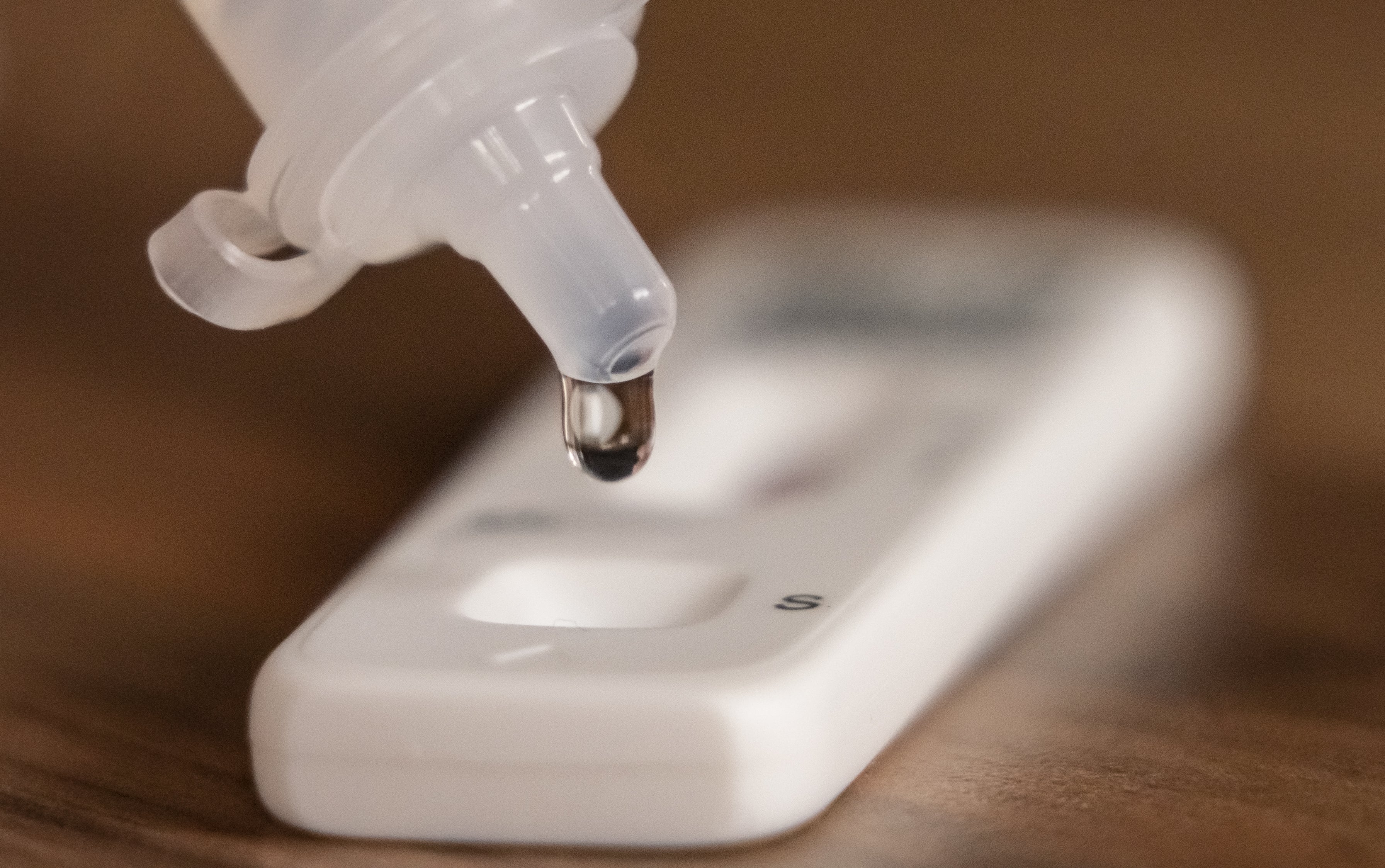What are the rules around testing and can I catch Covid twice?
If Covid tests stay positive, then isolation continues for a full 10 days.

Your support helps us to tell the story
From reproductive rights to climate change to Big Tech, The Independent is on the ground when the story is developing. Whether it's investigating the financials of Elon Musk's pro-Trump PAC or producing our latest documentary, 'The A Word', which shines a light on the American women fighting for reproductive rights, we know how important it is to parse out the facts from the messaging.
At such a critical moment in US history, we need reporters on the ground. Your donation allows us to keep sending journalists to speak to both sides of the story.
The Independent is trusted by Americans across the entire political spectrum. And unlike many other quality news outlets, we choose not to lock Americans out of our reporting and analysis with paywalls. We believe quality journalism should be available to everyone, paid for by those who can afford it.
Your support makes all the difference.The current rules around Covid testing can be confusing, and then there is the risk of getting reinfected with coronavirus at some point in the future.
Here, we answer some of the big questions.
– What are the rules around day five testing?
People self-isolating with Covid-19 in England can now end their 10-day isolation early if they test negative on both day five and day six.
Lateral flow tests (LFTs) can be used to carry out the testing but isolation should only end if people do not have a temperature.
Those who are still positive must stay in isolation until they have had two negative test results taken on two consecutive days, for example, days seven and eight.
If tests stay positive, then isolation continues for a full 10 days.
In Scotland Wales and Northern Ireland, people can end self-isolation if they do not have a fever and test negative on a lateral flow on day six and again at least 24 hours later.
– What if I am feeling fine but my tests stay positive?
You should only end your self-isolation early if you have had two consecutive negative LFTs, which should be taken at least 24 hours apart.
After 10 days, you can end self-isolation even with a positive test as long as you do not still have a high temperature.
You do not need to continue self-isolating after 10 days if you only have a cough or loss of sense of smell/taste, as these symptoms can last for several weeks after the infection has gone.
Can I still produce a positive test even weeks after having Covid?
Yes. According to Gavi, the vaccine alliance, people can continue to test positive for Covid-19 for weeks or even months.
However, people do not stay contagious for that long and are therefore unlikely to transmit the virus to others.
PCR tests are much more sensitive than lateral flow tests and are more likely to report a continued positive result.
– How soon can I catch Covid again?
This is the million dollar question and scientists have not yet been able to give a definitive answer.
One study from Public Health England (PHE) in January 2021 showed that most people who had the virus were protected from catching it again for at least five months.
However, this was before the Omicron variant hit the UK, and new data suggests many people who had a previous variant are now going on to catch Omicron.
Vaccine research shows, though, that two jabs plus a booster are still protecting against serious disease, even among those unlucky to get Covid more than once.
Evidence suggests, and scientists hope, that each new infection causes milder illness.
– How can I know for sure it is a new case?
You cannot be 100% sure but, according to the UK Health Security Agency (UKHSA), anyone testing positive 90 days or more after a previous infection is considered to have a new infection (or to be “reinfected” with coronavirus).
The UKHSA says that 90 days long enough to assume that a second positive test is likely to be a reinfection, rather than a continuation of the first infection.
Anyone who tests positive within 90 days of a previous infection is not currently considered a reinfection.
– If I had the Delta variant, am I less likely to get Omicron?
Research in December from Imperial College London found that the Omicron variant largely evades immunity from past infection, and indeed from two doses of a vaccine.
The team estimated that the risk of reinfection with the Omicron variant is 5.4 times greater than that of the Delta variant.
To put this in context, a study on NHS workers (before Omicron) estimated that prior infection afforded 85% protection against a second Covid infection over six months.
But the Imperial study suggests this protection has now fallen to 19% against an Omicron infection.